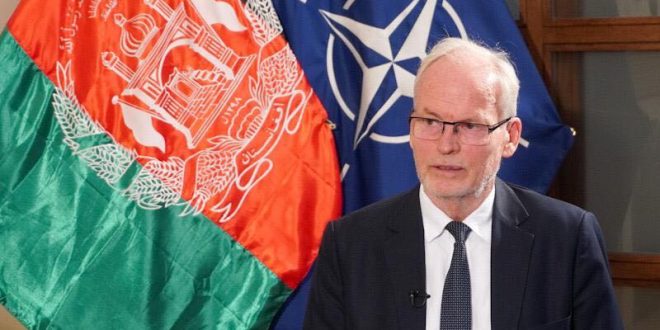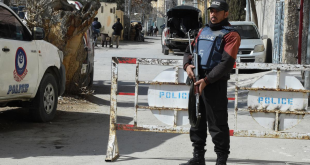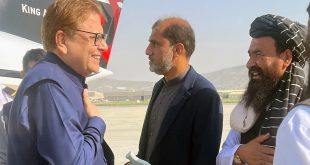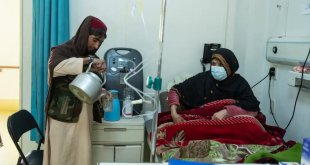By Sir Nicholas Kay
NATO Senior Civilian Representative in Afghanistan
NATO leaders will gather today (Wednesday) in London, marking the Alliance’s 70th anniversary. Bound by shared history, values and goals, NATO Allies will confront the common security issues of an increasingly unpredictable world. Fighting international terrorism will be one of them.
Afghanistan has been at the forefront of NATO’s effort to counter international terrorism ever since the United States was struck by the devastating attacks of 9/11. NATO had a clear objective that still remains valid today: to ensure that Afghanistan will never again become a safe haven for international terrorism. Over 40 nations have since contributed to the NATO-led missions, making this a truly international effort.
NATO Allies and partnersremain intent on helping Afghanistan become a safer place for all of us. NATO’s Resolute Support Mission focuses on making the Afghan National Defence and Security Forces (ANDSF) more capable by training, advising and assisting them. The ANDSF are increasingly self-sustainable and capable of securing the country on their own. We have seen some remarkable progress recently. The ANDSF were able to secure Afghan Presidential elections, regain district capitals, and mount offensive operations. Their commandos and air force are some of the best in the region. Coordination among the different security institutions is strong. Afghans are proud of those achievements. And we are proud to be helping.
Allies and partners also provide financial assistance to the Afghan Army. The Afghan National Army Trust Fund (ANA TF) has been an important way to sustain the Afghan military distributing up to $0.5bn every year. NATO member states also provide development assistance to Afghanistan on a bilateral basis to improve living conditions of the Afghan people.
The Afghan people continue to suffer from the violence imposed by the Taliban, Daesh and other terrorist groups. However, with the increasingly capable Afghan security forces, we are getting closer to peace. The Taliban know they cannot win on the battlefield. They now have to sit down and search a settlement at the negotiating table.
NATO supports fully the early resumption of talks with the Taliban. The Afghan government – and wider society – will ultimately have to be at the centre of formal negotiations with the Taliban in order to resolve their differences. This will not be an easy process. It will take time, patience and skill. But a negotiated settlement is the only way forward.
The Afghan government and the people will need to make most out of this unique opportunity for peace. They will need to be united, putting aside their political rivalries so that they can ensure that when they negotiate with the Taliban, they do it from the position of strength.
NATO will support Afghanistan on its path to peace. We will continue to work closely with our Afghan partners and the security forces. For peace to be durable, it needs to benefit all Afghans, not just a few. And it will need to be built on Afghanistan’s achievements since 2001: democracy, impact for human rights and in particular women’s rights.
 Afghanistan Times
Afghanistan Times




